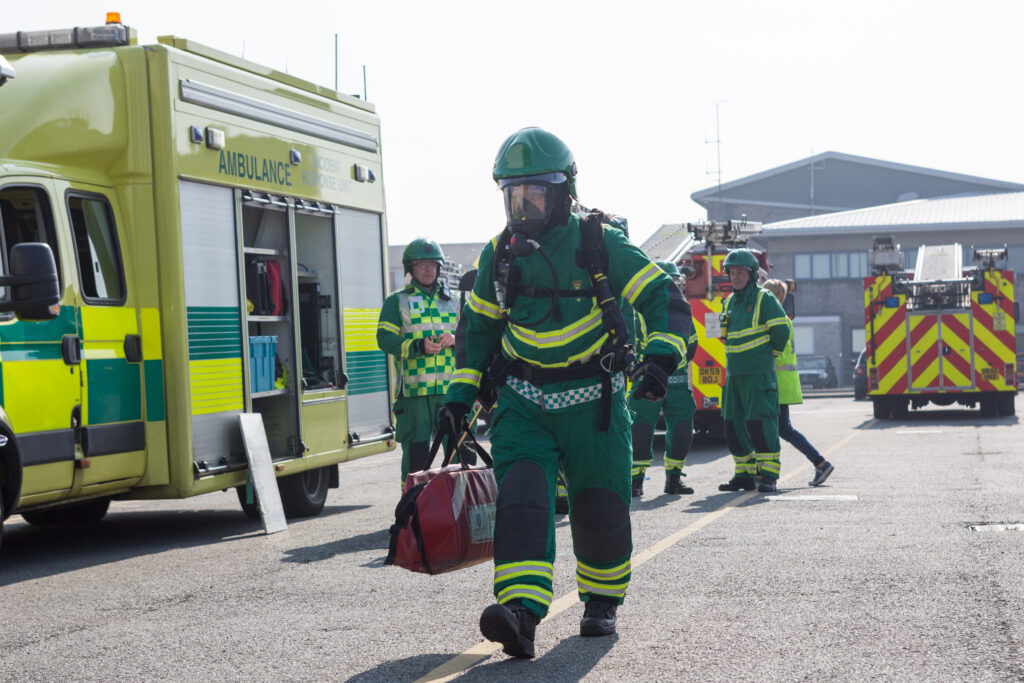
We form part of the NHS response to a major incident, attending to the immediate clinical needs of those involved. We work with other organisations to make sure that we’re able to deliver the best care and assistance to any casualties, which minimises disruption to other healthcare services and brings about a speedy return to our normal service.
Our key responsibilities:
- Save lives in conjunction with other emergency services.
- Have on call ambulance tactical advisors who have the expertise to provide advice based on our major incident plan.
- Allocate a safety officer responsible for the health and safety for the NHS staff on-site.
- Co-ordinate and manage the on-site NHS response and alert other emergency services.
- Communicate with hospitals so they know how many patients we will be taking to them.
- Communicate with the public so you know what’s happening and how you can keep safe.
Our hazardous area response team (HART) is made up of specially trained paramedics who attend incidents that have the potential to be more dangerous, those which require a more specialised set of skills, or incidents that are declared a major incident. These scenarios could be the result of environmental factors, simply an accident or could have been caused deliberately and could include:
- Incidents involving actual or suspected chemical, biological, radiological, nuclear or other hazardous materials, such as a gas leak
- Fires and explosions
- Transport related incidents, such as rail crashes and multi-vehicle road traffic collisions
- Incidents involving suspect packages, bags, vehicles and envelopes as well as explosive devices
- Unsafe structures
- Incidents involving unconscious patients where the cause is undetermined
- Incidents that involve working at height
- Incidents which involve accessibility issues
- Mountain and cave rescue
- Inland water operations, for example flooding
The team works alongside fire and rescue services within the ‘hot zone’ of a major incident. Its job is to triage and treat patients to save lives in very difficult circumstances. The team may also be called upon to look after other emergency service colleagues who have become injured whilst attending an incident.
HART members go through intense training to make sure they are ready and prepared for the worst case scenario, including training with police, a two week breathing apparatus and gas tight chemical suit course with the fire service, a three week residential course at a defence, nuclear, biological and chemical centre and an inland water operations course.
They are also equipped with some of the most sophisticated equipment in Europe, specially designed to provide a safe and effective way of working.